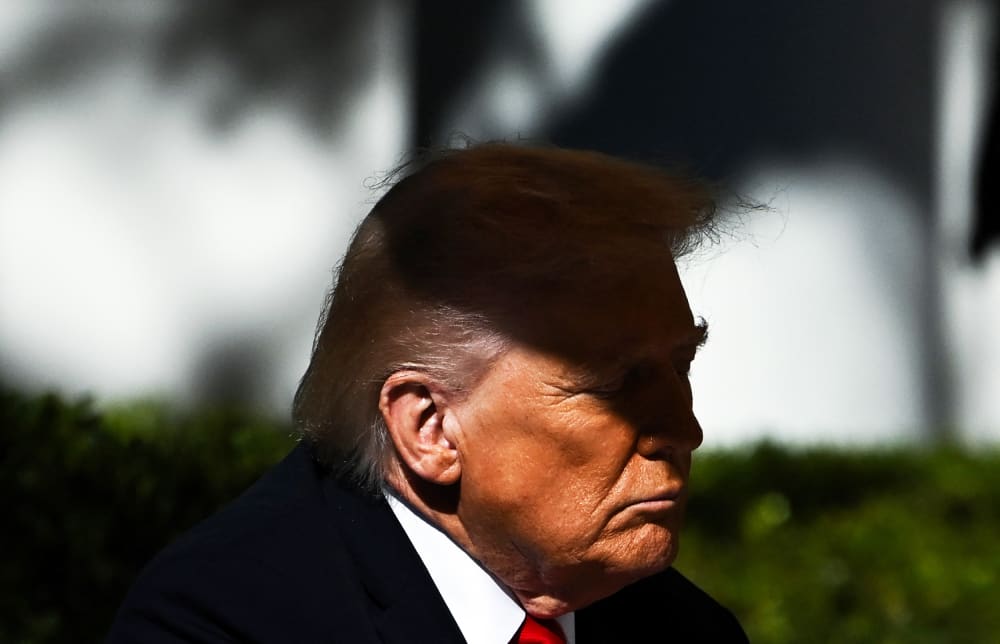As of this month, it has been exactly a decade since Donald Trump took a permanent polling lead in the 2016 Republican presidential primary. In the intervening 10 years, no other Republican has significantly threatened his hold over the GOP base, a grip that, despite his loss in the 2020 election, has seemed only to strengthen as the years have passed.
But that grip could be loosening, in part because Trump is demanding his base side with him against other Republicans on an issue that makes the choice far harder than he wants to admit.
As Trump’s allies railed against his successor in the White House for refusing to release the Epstein files, Trump generally stayed quiet.
Take the so-called Jeffrey Epstein files. The convicted sex offender took his own life while incarcerated in federal prison in 2019, a moment at which a splinter group of Trump supporters calling itself QAnon was focused on the idea that a cabal of American elites was engaged in a widespread campaign of child sex trafficking. Epstein’s life — and death, according to conspiracy theories — became a tangible demonstration of just such a secret society. Many on the right, even outside the QAnon fringe, agitated for the release of all information about Epstein’s activities, expecting that it would prove embarrassing to prominent Democrats and liberal celebrities they viewed with disdain.
It was clear even then, though, that Trump’s name would also crop up in that material, as the pair were friends for years, traveling in each other’s social circles in New York and Florida. But as Trump’s allies railed against his successor in the White House for refusing to release the Epstein files, Trump generally stayed quiet. When he was asked about the issue, he didn’t call for the files’ release, instead expressing concern that innocent people would be hurt if the files were made public.
This was atypical for Trump. Usually, he’d champion the wild, unsubstantiated claims targeting the right’s perceived enemies. When he took office again in January, however, he found himself in the uncomfortable position of being empowered to deliver what his base wanted but not actually wanting to do so. So he didn’t.
Polling has repeatedly shown that this incongruity has created a schism in his support. In polling conducted in October by Ipsos for Reuters, 9 in 10 Republicans expressed approval of Trump’s presidency. But only 4 in 10 indicated that they approved of how he was handling the Epstein files. Quinnipiac University polling conducted this summer found a similar split: 84% of Republicans approved of Trump’s presidency, but only 44% approved of how he was handling Epstein.

It’s not great for Trump that a third of Republicans told Quinnipiac they disapproved of his handling of Epstein. What might also alarm the president, though, is that 22% of them said they didn’t know whether they approved of how he was handling Epstein.
Why is that a cause for concern? Because voters often say they don’t know how they feel when they actually do know but don’t want to express it. A big chunk of that 22% of Republicans disapprove of how Trump is handling Epstein but haven’t gotten to the point where they want to say that on the record.
This is an indicator of softness in Trump’s support, but it’s not the only such indicator. Consider YouGov’s regular polls on approval of Trump’s second term as president. Since February, the monthly average of his approval rating among all adults has dropped from just under 50% to just under 40%. Among Republicans, it’s dropped more subtly, from 91% to 86%.

But the composition of his approval rating among Republicans has also changed. Much of the shift among Americans overall is a function of an 8-percentage-point drop in the share of people saying they strongly approve of his presidency. Among Republicans, the drop in strong approval was 17 points — but that’s masked by a 12-point increase in the percentage who say they somewhat approve of the job he’s doing.

This, too, is how polling often evolves. People rarely go from strong support to strong opposition. They generally make a few stops along the way — somewhat support, to not sure if they support, to soft opposition. A chunk of Republicans have started on that path since January. Trump still has the approval of most Republicans, but more than a third of that support is relatively soft.












